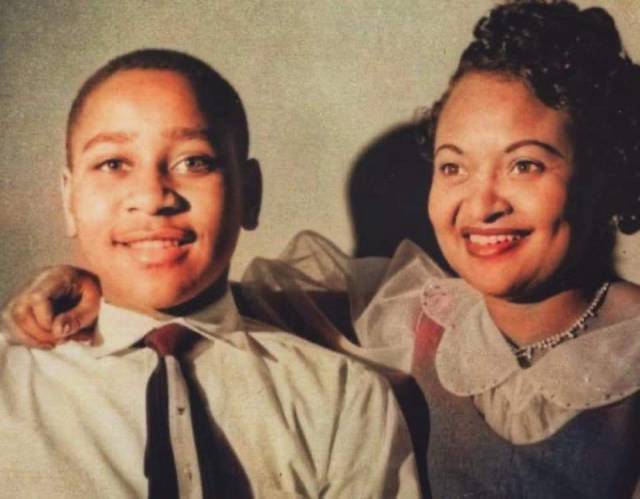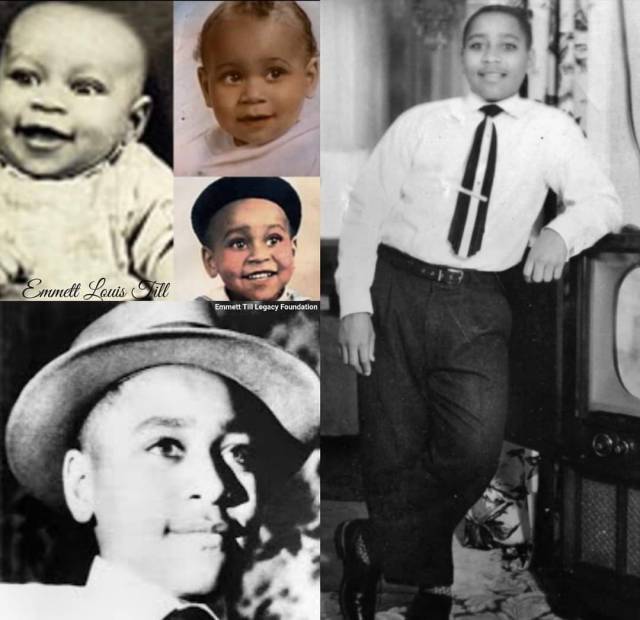#1619 project
Remembering 14-year-old Emmett Till, who was brutally murdered on this day, August 28, 1955, by white supremacists in Mississippi. Rest in peace, Emmett.




Remembering John Lewis today.
Juneteenth 2021
“My mother was sold at Richmond, Virginia, and a gentleman bought her who lived in Georgia, and we did not know that she was sold until she was gone; and the saddest thought was to me to know which way she had gone, and I used to go outside and look up to see if there was anything that would direct me, and I saw a clear place in the sky, and it seemed to me the way she had gone, and I watched it three and a half years, not knowing what that meant, and it was there the whole time that mother was gone from her little ones.”
–Kate Drumgoold, “A Slave Girl’s Story”, 1898

“The every-day life of a slave on one of our southern plantations, however frequently it may have been described, is generally little known at the North. The principal food of those upon my master’s plantation consisted of corn meal, and salt herrings; to which was added in summer a little buttermilk, and the few vegetables which each might raise for himself and his family, on the little piece of ground which was assigned to him for the purpose, called a truck patch. The meals were two, daily. The first, or breakfast was taken at 12 o’clock, after laboring from daylight; and the other when the work of the remainder of the day was over. The only dress was of tow cloth, which for the young, and often even for those who had passed the period of childhood, consisted of a single garment, something like a shirt, but longer, reaching to the ankles; and for the older, a pair of pantaloons, or a gown, according to the sex, while some kind of round jacket, or overcoat, might be added in winter, a wool hat once in two or three years, for the males, and a pair of coarse shoes once a year. Our lodging was in log huts, of a single small room, with no other floor than the trodden earth, in which ten or a dozen person-men, women, and children-might sleep, but which could not protect them from dampness and cold, nor permit the existence of the common decencies of life. There were neither beds, nor furniture of any description-a blanket being the only addition to the dress of the day for protection from chillness of the air or the earth. In these hovels were we penned at night, and fed by day; here were the children born, and the sick-neglected. Such were the provisions for the daily toll of the slave.”
–Josiah Henson, “The Life of Josiah Henson, Formerly a Slave. Narrated by himself. 1849

Remembering John Lewis, born on this day, February 21, 1940.


Formerly the site of Lumpkin’s Jail, where the slave trader Robert Lumpkin began operating his business in the mid-1840s, this spot is one of 20 that make up the Richmond Slave Trail, in Richmond, Virginia. From this New York Times photoessay, part of the 1619 Project. Photo by Dannielle Bowman.
Post link
I keep seeing the phrase “when the news finally reached Texas” in reference to Juneteenth. Let’s be super clear. White people in Texas knew slavery was over. They just chose not to tell the Black people. Juneteenth was when the Black people finally found out. History is so whitewashed that we accept the euphemisms as gospel. It didn’t take 2 ½ years for the messenger to bring the news. The rest of the Union didn’t forget to tell Texas. White Texans just got away with keeping their slavery way of life for 2 extra years and nobody said shit. Hell yes, #Juneteenth should be a federal fucking holiday, but ALSO we should be teaching #CriticalRaceTheory in our schools so we don’t get watered down versions of history.

